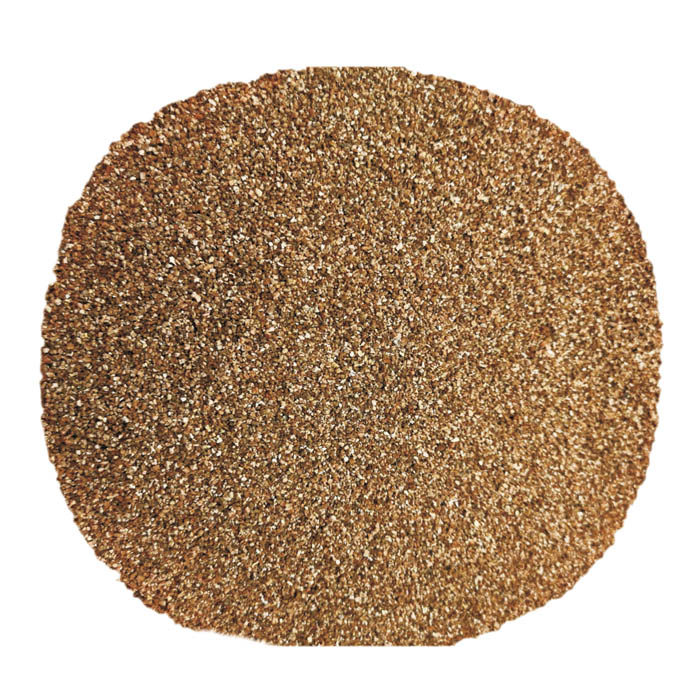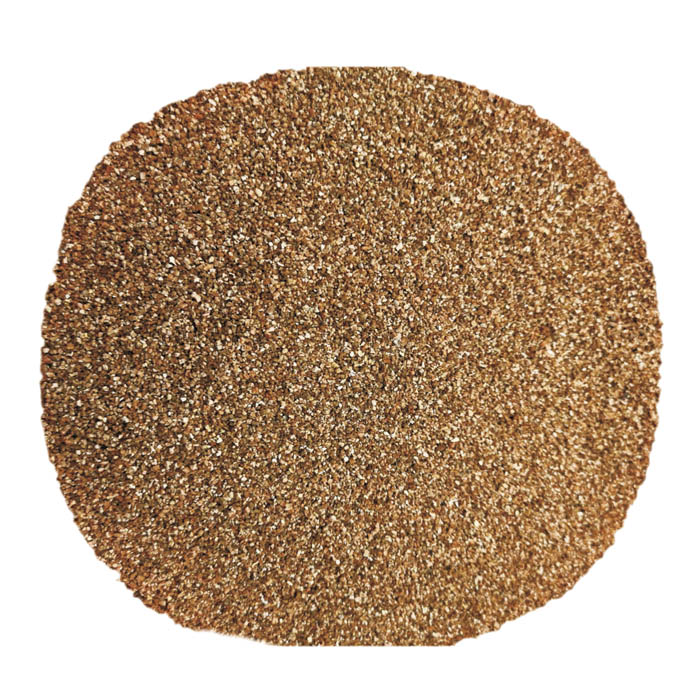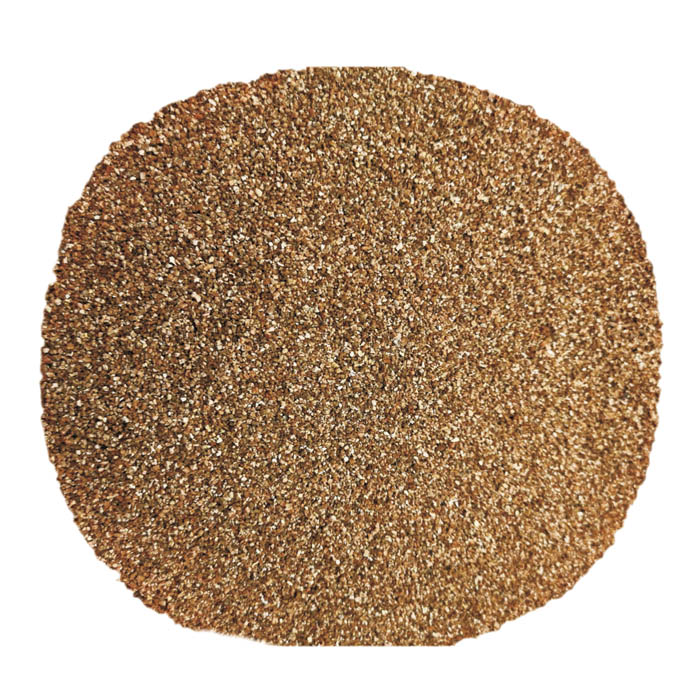elo . 28, 2025 02:00 Takaisin listalle
Premium Vermiculite in Soil Exporters | Global Supplier
Understanding Vermiculite in Soil: Industry Trends and Strategic Supply
The global demand for high-performance soil amendments continues to surge, driven by advancements in sustainable agriculture, urban horticulture, and specialized landscaping projects. Within this dynamic market, vermiculite stands out as a critical component, renowned for its exceptional water retention, aeration, and cation exchange properties. As agricultural practices evolve towards greater efficiency and environmental stewardship, the role of reliable vermikuliitti maaperän viejissä becomes increasingly vital. These specialized suppliers are instrumental in ensuring a consistent and high-quality supply chain for various industries worldwide.
Current industry trends indicate a strong focus on lightweight growing media, improved nutrient delivery systems, and resilience against climate fluctuations. Vermiculite, a hydrous phyllosilicate mineral, perfectly addresses these needs by enhancing soil structure, optimizing moisture distribution, and buffering pH levels. This section delves into the strategic significance of vermiculite within the B2B supply chain, outlining its processing, technical specifications, diverse applications, and the competitive landscape for sourcing this essential material.
The Advanced Manufacturing Process for Horticultural-Grade Vermiculite
The journey from raw vermiculite ore to a high-quality soil amendment involves a meticulous multi-stage manufacturing process, ensuring the final product meets stringent horticultural and agricultural specifications. As a leading vermikuliitti maaperän valmistajassa, our process emphasizes precision and quality control at every step.
Process Flow Overview:
- Ore Mining & Extraction: High-purity vermiculite ore is extracted from designated deposits. Raw materials are rigorously inspected to ensure minimal impurities, typically with a focus on mineralogical composition (e.g., magnesium-aluminum-iron silicate content) to predict exfoliation characteristics.
- Crushing & Screening: The raw ore undergoes primary and secondary crushing to reduce particle size. This is followed by multi-deck screening to separate different grades based on particle size (e.g., coarse, medium, fine), which directly impacts its end-use application.
- Exfoliation (Thermal Expansion): This is the most critical stage. The sized vermiculite flakes are fed into specialized exfoliation furnaces operating at temperatures typically ranging from 800°C to 1100°C. The rapid heating causes the interlayer water in the vermiculite structure to flash into steam, expanding the flakes perpendicular to the basal planes by up to 8-20 times their original volume. This process transforms dense flakes into lightweight, accordion-like granules.
- Cooling & Secondary Screening: The exfoliated vermiculite is rapidly cooled to stabilize its expanded structure. It then undergoes another screening process to remove any unexfoliated material and to sort the expanded vermiculite into specific particle size ranges (e.g., #1, #2, #3, #4 grades), suitable for various horticultural or industrial applications.
- Dust Removal & Packaging: A final air classification or dedusting step ensures minimal fine particles, optimizing handling and product purity. The finished product is then packaged into various bulk or bag formats, ready for dispatch by vermikuliitti maaperän toimittajissa.
Quality Assurance and Testing Standards:
Our manufacturing facilities adhere strictly to international quality management systems, including ISO 9001:2015. Each batch undergoes rigorous testing to meet or exceed industry standards such as ASTM C516 (Standard Specification for Vermiculite Loose-Fill Insulation), which, while primarily for insulation, provides relevant parameters for material integrity. Key parameters tested include:
- Bulk Density: Measured in kg/m³, ensuring lightweight properties.
- Water Holding Capacity: Gravimetric and volumetric absorption rates, crucial for horticultural performance.
- Cation Exchange Capacity (CEC): Measured in meq/100g, indicating nutrient retention ability.
- pH Level: Ensuring compatibility with target soil or growing media.
- Particle Size Distribution: Verified using sieve analysis.
- Mineralogical Purity: X-ray diffraction (XRD) analysis to confirm vermiculite content and absence of harmful contaminants.
The service life of vermiculite in soil applications is exceptionally long, often extending for many years without significant degradation of its physical properties. It does not decompose like organic matter, providing long-term structural and functional benefits to the growing medium.
Target Industries & Advantages:
- Horticulture & Agriculture: Seed germination, potting mixes, hydroponics, soil conditioning. Advantages include enhanced water retention (reducing irrigation frequency), improved aeration for root development, and better nutrient buffering.
- Construction: Lightweight aggregates for concrete, plasters, and fireproofing.
- Industrial: Carrier for chemicals, loose-fill insulation, specialized packaging.

Technical Specifications and Performance Metrics
The performance of vermiculite in various applications is directly linked to its specific physical and chemical parameters. Our vermiculite products are engineered to provide optimal functionality in demanding B2B scenarios, from large-scale agricultural projects to precision hydroponic systems. The following table details typical specifications for our horticultural-grade vermiculite.
Typical Product Specifications: Exfoliated Horticultural Vermiculite
| Property | Unit | Value Range | Test Method / Standard |
|---|---|---|---|
| Particle Size Distribution (Grade #3) | mm | 2.0 - 5.0 (min. 85%) | ISO 2591-1:1988 |
| Bulk Density (Loose) | kg/m³ | 90 - 130 | ASTM C520 |
| Water Holding Capacity (Volumetric) | % by volume | 300 - 450 | Internal SOP based on EN 13041 |
| Cation Exchange Capacity (CEC) | meq/100g | 80 - 150 | Ammonium Acetate Method |
| pH Range | - | 6.0 - 9.0 (neutral to slightly alkaline) | ASTM D4972 |
| Moisture Content | % by weight | < 5 | Gravimetric |
| Inert Material Content | % by weight | < 0.5 | Visual/Microscopic |
These specifications underscore vermiculite's unique ability to act as a multi-functional soil amendment. Its high CEC allows it to absorb and slowly release essential plant nutrients, while its porous structure ensures excellent drainage and aeration, preventing root rot and promoting robust growth.
Diverse Application Scenarios of Vermiculite
The versatility of vermiculite makes it an indispensable material across a broad spectrum of industries. Its unique physical and chemical properties provide targeted solutions for enhancing performance and efficiency.
Key Application Areas:
- Horticulture and Propagation: Widely used in seed starting mixes due to its sterility, moisture retention, and aeration properties. It provides an ideal environment for delicate seedlings and cuttings, promoting strong root development and reducing transplant shock. Many commercial nurseries rely on bulk vermikuliitti maaperän toimittajissa for their propagation needs.
- Soil Conditioning and Improvement: For heavy clay soils, vermiculite improves drainage and prevents compaction. For sandy soils, it enhances water and nutrient retention. It effectively buffers pH fluctuations, creating a more stable growing environment for a wide range of plants.
- Hydroponics and Soilless Media: Its inert nature, high water holding capacity, and excellent aeration make it a superior choice for hydroponic systems and soilless growing media. It provides a stable and consistent substrate for roots, ensuring efficient nutrient uptake.
- Roof Gardens and Green Walls: The lightweight nature of exfoliated vermiculite significantly reduces structural load, making it ideal for extensive green roofing and vertical gardening systems. It aids in moisture management and provides essential aeration for plant health in these demanding environments.
- Turf Management and Sports Pitches: Incorporating vermiculite into turf underlays or topdressing mixes improves drainage, reduces compaction, and aids in moisture retention, leading to healthier, more resilient playing surfaces.
- Industrial Absorbents: Its highly porous structure makes it an excellent absorbent for spills of oils, chemicals, and other liquids, offering a safe and effective cleanup solution in industrial settings.

Technical Advantages and Performance Benchmarks
The selection of soil amendments is a critical decision for B2B clients, directly impacting yield, growth rates, and operational costs. Vermiculite offers a compelling suite of technical advantages that set it apart from conventional alternatives.
Key Technical Advantages:
- Superior Water Holding Capacity: Vermiculite can absorb 3-4 times its weight in water, acting as a reservoir that slowly releases moisture to plant roots. This significantly reduces irrigation frequency and water consumption, leading to considerable cost savings in large-scale operations.
- Exceptional Aeration: Its unique, accordion-like structure creates numerous air pockets within the soil or growing medium, ensuring adequate oxygen supply to roots, preventing anaerobic conditions, and fostering healthy root development.
- High Cation Exchange Capacity (CEC): The high CEC of vermiculite allows it to adsorb and store essential plant nutrients (like potassium, magnesium, calcium, and ammonium) from fertilizers, releasing them gradually as needed. This minimizes nutrient leaching, optimizes fertilizer efficiency, and reduces environmental impact.
- pH Buffering: Vermiculite has a natural pH range that helps to stabilize soil acidity, creating a more consistent and favorable environment for plant growth, even in the face of variable water or fertilizer inputs.
- Sterile and Inert: Being a mineral product, exfoliated vermiculite is sterile and free from pathogens, weeds, and insects, making it an ideal choice for sensitive applications like seed starting and tissue culture. It does not decompose or compact over time, offering long-term structural stability.
- Lightweight: Its low bulk density makes it an excellent choice for reducing the weight of potting mixes, container111 gardens, and green infrastructure, facilitating easier handling and reducing shipping costs.
Comparison: Vermiculite vs. Perlite
While both vermiculite and perlite are popular lightweight soil amendments, their distinct properties make them suitable for different applications. Understanding these differences is crucial for clients looking for optimal performance.
| Feature | Vermikuliitti | Perlite |
|---|---|---|
| Composition | Hydrous Magnesium-Aluminum Silicate | Volcanic Glass (Amorphous Aluminum Silicate) |
| Water Holding Capacity | Very High (absorbent) | High (surface adherence) |
| Aeration Properties | Excellent | Superior (very porous) |
| Cation Exchange Capacity (CEC) | High (80-150 meq/100g) | Negligible (2-5 meq/100g) |
| pH Range | 6.0 - 9.0 (neutral to slightly alkaline) | 6.5 - 7.5 (neutral) |
| Durability / Structure | Soft, compressible, long-lasting | Rigid, friable, long-lasting |
| Primary Application Focus | Seed starting, cuttings, soil conditioning, moisture retention | Aeration, drainage, rooting media |
This comparison highlights that while perlite excels in providing drainage and aeration, vermiculite offers superior water and nutrient retention, making it particularly advantageous in applications requiring sustained moisture and nutrient availability.
Strategic Vendor Comparison for Vermiculite Supply
Choosing the right vermikuliitti maaperän toimittajassa is paramount for ensuring consistent quality, competitive pricing, and reliable logistics. B2B decision-makers must evaluate vendors based on several critical criteria beyond just the product itself.
Key Evaluation Criteria for Vermiculite Exporters:
- Product Purity and Consistency: Verify the supplier's commitment to low impurity levels and consistent particle size distribution and exfoliation ratios across batches. Request certificates of analysis (CoAs) for recent shipments.
- Certifications and Compliance: Look for ISO 9001 certification for quality management. For specific applications, consider certifications like RHP (for growing media) or compliance with organic farming standards if applicable. Our products comply with relevant international standards, reflecting our commitment to quality.
- Supply Chain Robustness: Assess the exporter's capacity for bulk orders, their logistical network, and their ability to meet tight deadlines. Experience with international shipping and customs clearance is crucial.
- Technical Support and Expertise: A superior vendor offers expert technical advice on product application, formulation, and problem-solving. This includes understanding specific crop requirements or industrial process needs.
- Customization Capabilities: The ability to provide bespoke particle sizes, blends, or specific packaging solutions for unique projects.
- Years of Service and Reputation: A proven track record in the industry, supported by strong client testimonials and long-term partnerships, is indicative of reliability and trustworthiness. With over a decade of experience, we have established ourselves as a trusted partner to numerous global enterprises.

Customized Solutions and Application Case Studies
Recognizing that no two projects are identical, we specialize in providing tailored vermiculite solutions to meet the precise demands of our B2B clients. Our expertise as a vermiculite in soil exporter extends beyond standard product offerings to include bespoke formulations and delivery mechanisms.
Customization Capabilities:
- Particle Size Tailoring: We can provide vermiculite in specific grades (e.g., coarser for improved drainage in heavy soils, finer for seed coating or delicate propagation mixes) that are outside standard commercial ranges.
- Blended Media Development: Collaborating with clients to create custom growing media blends, combining vermiculite with other amendments like perlite, coco coir, or peat, to achieve desired physical and chemical properties for specific crops or hydroponic systems.
- Packaging and Logistics: From large bulk bags (e.g., 1 m³ super sacks) to specific smaller bag sizes or private labeling, we adapt our packaging to client operational requirements and branding. Optimized logistics planning for international freight, including documentation and customs support.
- Technical Consultation: Our team of material scientists and agricultural specialists offers in-depth consultation to optimize vermiculite application for improved crop yield, reduced water usage, or enhanced soil longevity.
Application Case Studies:
Our commitment to delivering exceptional value is demonstrated through successful client partnerships across diverse sectors:
-
Case Study 1: Large-Scale Commercial Greenhouse (Europe)
A prominent European greenhouse operation sought to enhance the water efficiency and nutrient retention of its growing media for ornamental plants. We provided a custom blend of fine-grade vermiculite (#4) integrated into their peat-based potting mix. Results: Over 15% reduction in irrigation frequency and 10% lower fertilizer runoff, leading to significant operational cost savings and improved plant vigor. The client reported stronger root systems and more uniform growth across their production cycles. -
Case Study 2: Urban Rooftop Farm (North America)
A leading urban farming enterprise required a lightweight, high-performance substrate for its extensive rooftop vegetable gardens. We developed a specialized vermiculite-perlite-compost blend, optimizing for weight reduction, thermal insulation, and moisture regulation critical for rooftop environments. Outcome: The custom media reduced overall structural load by 20% compared to traditional soil, maintained optimal moisture levels during peak summer heat, and supported robust yields of diverse vegetable crops. -
Case Study 3: Seed Propagation Facility (Asia)
A major seed producer faced challenges with inconsistent germination rates and fungal issues in their propagation trays. We supplied sterilized, medium-grade vermiculite (#2) for their seed-starting mixes. Impact: Germination rates improved by an average of 8%, and instances of damping-off disease were virtually eliminated due to the sterile and well-aerated environment provided by the vermiculite. This led to enhanced seedling uniformity and reduced production losses.
These examples illustrate our capability to adapt and innovate, ensuring that our vermiculite solutions deliver measurable benefits to our diverse client base.
Frequently Asked Questions (FAQ)
Addressing Common Inquiries for Vermiculite in Soil Exporters
Q1: What is the typical lead time for bulk orders of vermiculite?
A1: For standard bulk orders (e.g., container111 loads), our typical lead time is 15-20 business days from order confirmation to port departure. Specific lead times may vary based on order volume, customization requirements, and current shipping schedules. We encourage clients to discuss their specific timelines with our sales team.
Q2: What are the packaging options available for vermiculite?
A2: We offer a range of packaging solutions to suit various client needs: 1 m³ (or 1.5 m³) super sacks/bulk bags, 100-liter bags, and customized smaller bags upon request. All packaging is designed for optimal protection during transit and ease of handling on-site.
Q3: What kind of quality certifications do your vermiculite products hold?
A3: Our manufacturing processes are ISO 9001:2015 certified, ensuring consistent quality management. Our vermiculite products undergo rigorous testing according to internal SOPs aligned with relevant international standards (e.g., ASTM, ISO) for properties such as bulk density, water holding capacity, and particle size distribution. Certificates of Analysis are provided with each shipment.
Q4: What is your warranty policy for vermiculite products?
A4: We guarantee our vermiculite products to be free from manufacturing defects and to conform to the agreed-upon technical specifications at the time of delivery. Any claims regarding product non-conformance must be reported within 30 days of receipt, accompanied by relevant documentation. Our commitment extends to providing products that meet or exceed industry expectations for quality and performance.
Q5: How do you handle after-sales support and technical inquiries?
A5: Our dedicated customer support team and technical specialists are available to assist with any post-purchase inquiries, application guidance, or troubleshooting. We offer responsive communication channels, including email, phone, and online portals, to ensure prompt resolution and continuous client satisfaction. Long-term partnerships are built on reliable support.
Conclusion: Partnering for Sustainable Growth
The strategic importance of high-quality vermiculite in modern agriculture, horticulture, and specialized industrial applications cannot be overstated. As a comprehensive vermikuliitti maaperän toimittajassa and exporter, we are committed to delivering products that meet the highest standards of purity, performance, and environmental responsibility. Our robust manufacturing processes, stringent quality controls, and customer-centric approach ensure that B2B clients receive optimal value and reliable supply.
By leveraging vermiculite's unique properties – from its exceptional water and nutrient retention to its superior aeration capabilities – businesses can achieve enhanced crop yields, conserve resources, and foster sustainable growth across their operations. We invite prospective partners to explore how our tailored vermiculite solutions can support their specific project requirements and long-term strategic objectives.
References
- International Organization for Standardization (ISO). ISO 9001:2015 Quality management systems — Requirements.
- ASTM International. ASTM C516 - 19 Standard Specification for Vermiculite Loose-Fill Insulation.
- White, R.E. (2006). Principles and Practice of Soil Science: The Soil as a Natural Resource. Blackwell Publishing.
- Brady, N.C., & Weil, R.R. (2008). The Nature and Properties of Soils (14th ed.). Pearson Education.
- Rhoades, J. D. (1982). Cation exchange capacity. In A. L. Page (Ed.), Methods of soil analysis: Part 2. Chemical and microbiological properties (2nd ed., pp. 149–157). American Society of Agronomy.
Tämä on viimeinen artikkeli
-
Premium Vermiculite in Soil Exporters | Global Supplier
UutisetAug.28,2025
-
Zonolite vermiculite historical uses in construction
UutisetAug.22,2025
-
Pink bauxite rarity and collector value
UutisetAug.22,2025
-
Heat refractory material thermal conductivity characteristics
UutisetAug.22,2025
-
Refractory lining material selection criteria
UutisetAug.22,2025
-
Therm O Rock vermiculite insulation properties
UutisetAug.22,2025
